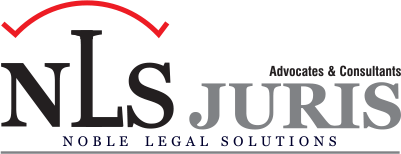Proven legal tactics for effective representation.
Legal representation is as much about strategy as it is about knowledge of the law. Whether dealing with a criminal defense, civil litigation, corporate dispute, or family matter, the goal is always the same: to achieve the best possible outcome for the client. Accomplishing that requires more than understanding legal doctrines — it demands smart, adaptive, and client-focused tactics. Below, we explore the most reliable and proven legal tactics that empower lawyers to represent effectively.
Understanding the Case Thoroughly
Effective representation begins with mastering the facts. A strong legal strategy is built upon a clear and complete understanding of the client’s circumstances. This involves interviewing clients in detail, gathering supporting documentation, identifying relevant timelines, and anticipating legal questions that may arise. When a lawyer knows their case inside and out, they can present it with clarity, confidence, and precision.
Moreover, a fact-driven approach helps attorneys identify weaknesses in the opposing party’s claims and highlight inconsistencies. This preparation also enables effective rebuttals and allows for better courtroom adaptability.
Grounding Every Argument in Solid Legal Research
One of the foundational tactics of impactful legal practice is meticulous legal research. Lawyers must be able to identify and apply statutes, procedural laws, and relevant precedents to construct their arguments. Successful attorneys don’t just know what the law says — they know how it has been interpreted by courts and how it fits into their case’s unique fact pattern.
Up-to-date knowledge of evolving jurisprudence, along with the ability to distinguish or analogize prior rulings, allows lawyers to frame their arguments persuasively. This research-based advocacy signals competence to both judges and opposing counsel.
Drafting with Precision and Purpose
Legal drafting is not a formality — it is a strategic tool. From petitions and contracts to affidavits and motions, every document a lawyer submits should be purposeful, clear, and legally sound. Effective drafting means using concise language, organizing content logically, and supporting claims with credible sources.
Whether it’s framing a complaint to capture judicial sympathy or structuring a contract to minimize future disputes, skilled drafting helps shape the direction and tone of the legal process. Judges often form initial impressions of a case based on written submissions, so every word matters.
Communicating Clearly with Clients
Client communication is a core tactic that significantly affects outcomes. Clients who understand the legal process are better equipped to make informed decisions. An effective attorney takes the time to explain legal options, possible outcomes, and realistic timelines. This not only builds trust but also minimizes misunderstandings and frustrations.
Additionally, informed clients are less likely to be blindsided by developments in their case. A lawyer who communicates well with their client is better positioned to represent them cohesively and adapt strategies when circumstances change.
Strategic Negotiation and Settlement Skills
Litigation is not always the best path — in many cases, negotiation leads to faster and more satisfying results. Effective lawyers recognize when to litigate and when to settle. This requires a deep understanding of both their own client’s interests and the pressure points of the opposing party.
Successful negotiation tactics include preparing alternatives (like mediation or arbitration), clearly defining objectives, and being willing to compromise without conceding key interests. The ability to close settlements that are fair, enforceable, and forward-looking is a hallmark of practical legal skill.
Presenting Evidence Effectively
In contested matters, evidence is the cornerstone of persuasion. A well-prepared lawyer doesn’t just collect evidence — they present it in a way that tells a story. Organizing documents, anticipating objections, preparing witnesses, and using demonstrative tools like charts or timelines can strengthen the impact of the case.
Moreover, skilled lawyers know the rules of evidence well enough to exclude harmful materials and ensure that their own submissions meet admissibility standards. This tactical edge can significantly tilt the balance in a close contest.
Maintaining Professional Courtroom Demeanor
Courtroom advocacy goes beyond legal arguments; it’s also about presentation. Judges and juries notice tone, demeanor, and professionalism. Lawyers who remain calm under pressure, who listen actively, and who present their points respectfully are more likely to be taken seriously.
Effective oral advocacy involves structured arguments, persuasive storytelling, and sharp responsiveness to unexpected questions. Maintaining control of the courtroom narrative and showing respect for court protocols builds credibility and advances the client’s position.
Embracing Continuous Learning and Adaptability
The legal field is dynamic — new laws are enacted, precedents evolve, and client expectations shift. Effective representation means staying current and adaptable. Smart lawyers engage in continuing legal education, follow landmark decisions, and remain open to new technology and legal tools.
Being proactive in learning not only keeps an attorney compliant but also enhances their ability to innovate solutions and gain a competitive edge in the courtroom or negotiation table.
Final Thoughts
Effective legal representation doesn’t happen by chance. It requires deliberate tactics, consistent preparation, and a client-first mindset. From deep case analysis to clear communication, from courtroom poise to negotiation agility, successful lawyers apply a combination of technical expertise and strategic thinking. These proven legal tactics not only help secure favorable results but also elevate the quality and integrity of legal practice.
